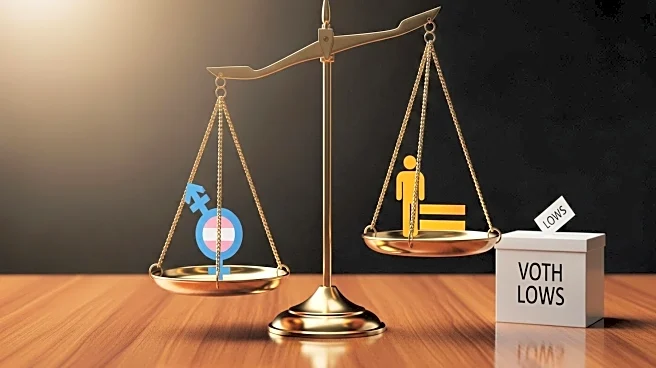What's Happening?
The Supreme Court is set to begin a new term with a docket filled with contentious cases, including those related to transgender rights and voting laws. The court will review cases challenging state bans on transgender students participating in sports teams that align with their gender identity. Additionally, the court will address a significant case concerning the 1965 Voting Rights Act, which could impact legal protections for minority voters. The term follows a summer of emergency cases involving President Trump, highlighting ongoing tensions within the court. The justices are expected to navigate these high-stakes issues amidst a politically charged environment.
Why It's Important?
The Supreme Court's decisions on these cases could have far-reaching implications for civil rights and state-federal power dynamics. The transgender rights cases could set precedents affecting LGBTQ+ rights across the nation, while the voting rights case could alter the landscape of electoral fairness and minority representation. These rulings will likely influence public policy and societal norms, affecting millions of Americans. The court's handling of these issues will also reflect its current ideological balance and could impact public perception of its role in addressing divisive social issues.
What's Next?
The court will hear arguments and make decisions on these cases over the coming months, with potential rulings expected by June. Stakeholders, including civil rights organizations and state governments, will closely monitor the proceedings. The outcomes could prompt legislative responses or further legal challenges, depending on the court's decisions. The term's developments will be pivotal in shaping the legal landscape for transgender rights and voting laws in the United States.










